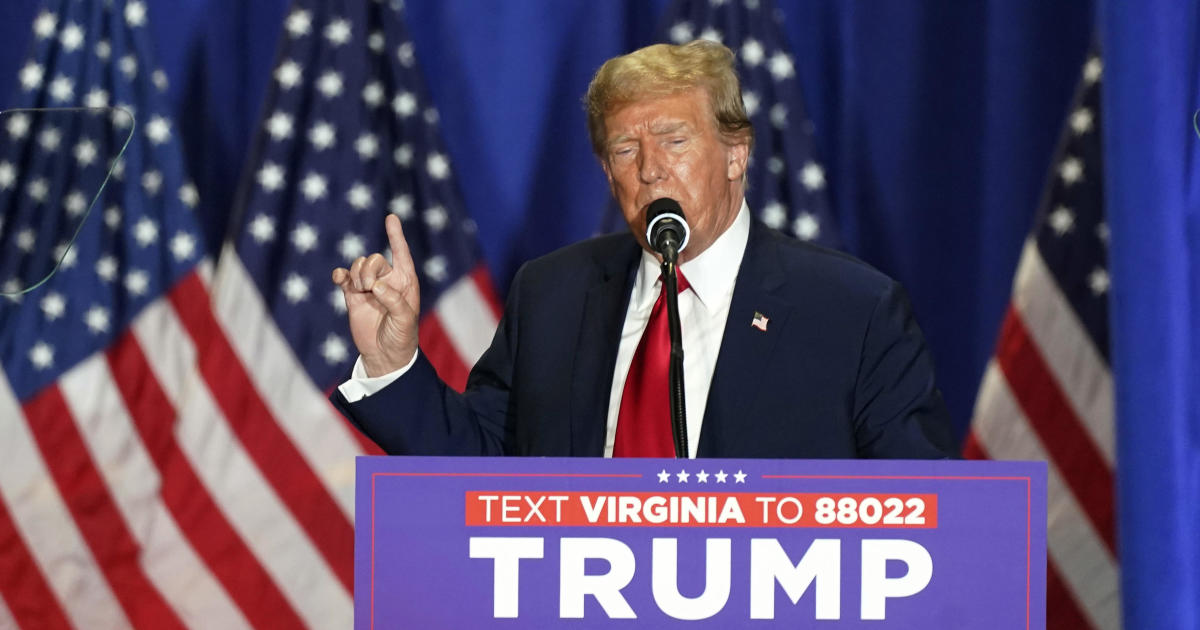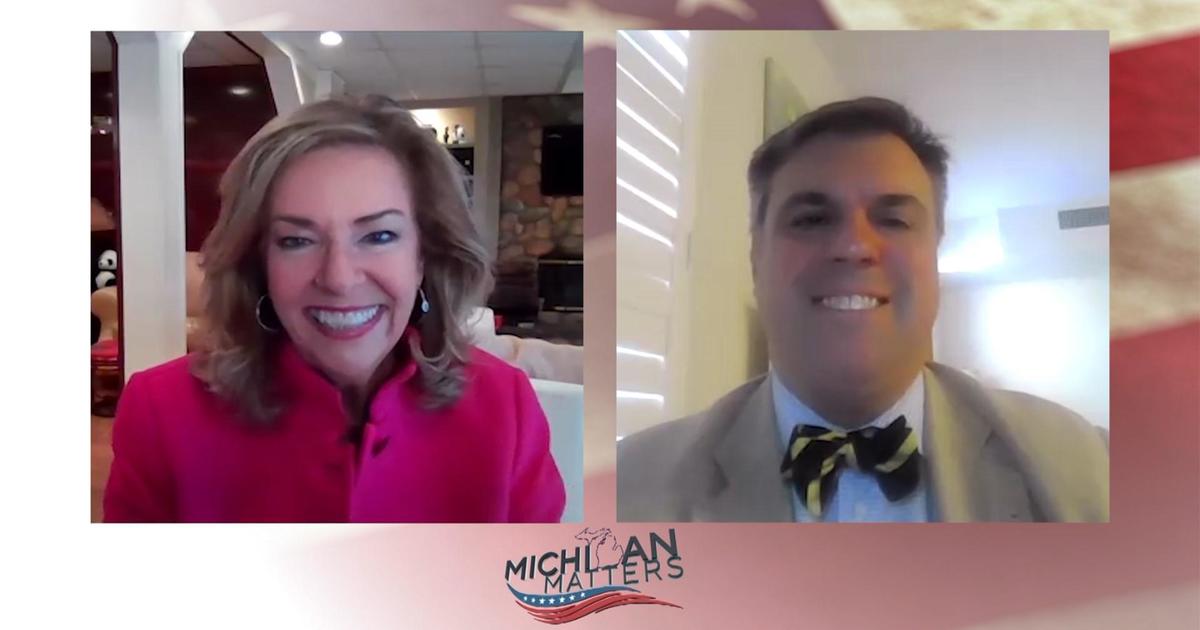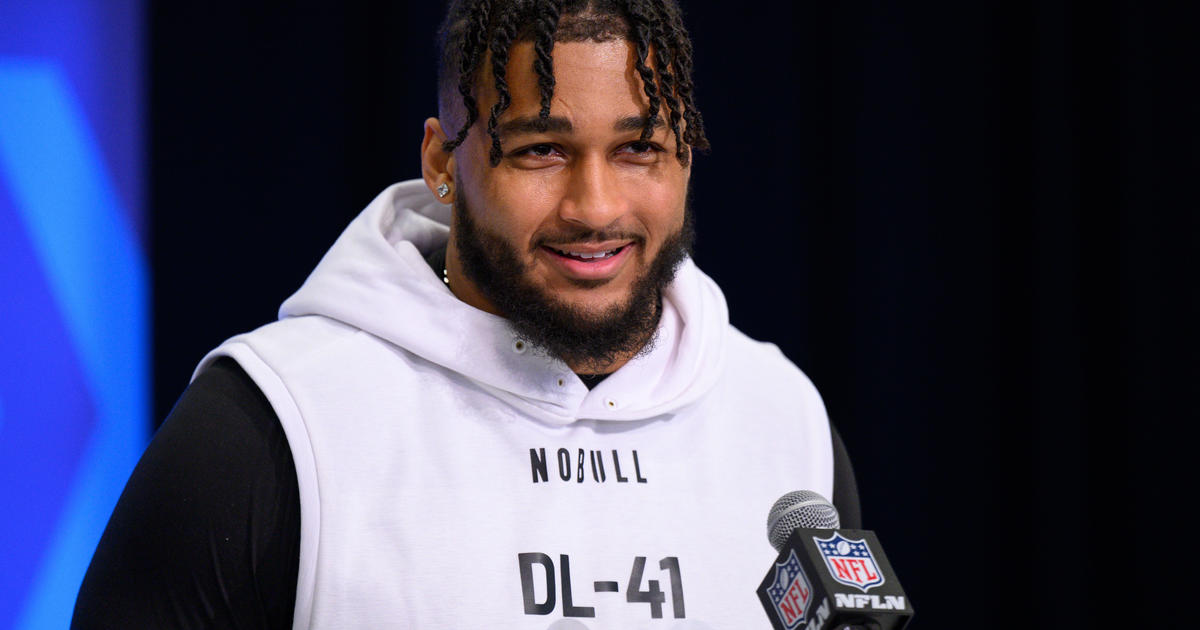Where the Republican presidential candidates stand on Israel and Ukraine funding
Funding for Israel and Ukraine — particularly for Ukraine — has become a contentious topic for Republicans and one that Republican presidential candidates are frequently being asked to address during the primary campaign.
Congress is still struggling to pass aid packages for Israel and Ukraine, and this week, the White House budget director warned that without new funding, aid for Ukraine will be depleted before the end of the year.
Republican voters have become increasingly skeptical of Ukraine aid, CBS News polling shows, although support for providing military aid to Israel is much stronger than it is for Ukraine. A CBS News/YouGov poll earlier this month showed 65% of Republicans support sending weapons and military aid to Israel, but only 45% of Republicans think the U.S. should send weapons and military aid to Ukraine.
Here's where the 2024 Republican field stand on these questions.
Chris Christie
Former New Jersey Gov. Chris Christie is one of the fiercest proponents of robust funding for both Israel and Ukraine, and he hasn't held back in criticizing his Republican opponents over their approaches to these crises.
He says he would have supported packaging aid to Ukraine and Israel together, which most Democrats also support.
The former New Jersey governor also traveled to Ukraine in August, becoming the second presidential candidate to do so. Former Vice President Mike Pence, who has since dropped out of the race, was the first GOP candidate to make the trip in June.
Both Christie and Nikki Haley are more in the conservative mainstream on foreign policy, favoring the use of U.S. resources to support and promote democracy abroad. During the third Republican debate in Miami in November, Christie said funding Ukraine is "the price we pay for being the leaders of the free world."
The former New Jersey governor also calls for funding Israel in its efforts to defeat Hamas. He was the first Republican candidate to visit Israel after Hamas launched its brutal and deadly assault on Oct. 7, and chided other Republican candidates for not visiting immediately, too. In Israel, Christie met with families of the hostages and survivors of Hamas' assault. Christie has said providing support to Gaza should be a "very, very low priority," compared to assisting the Israelis.
Ron DeSantis
Florida Gov. Ron DeSantis shares some of Donald Trump's "America first" isolationist impulses and has been among the Republicans most skeptical of providing funding for Ukraine. Several Republicans blasted DeSantis earlier this year for calling Russia's war on Ukraine a "territorial dispute," a comment he quickly walked back.
But DeSantis has said Ukraine aid is not "vital" to U.S. national interests, and argues that the U.S. has more important problems closer to home to address.
"We cannot prioritize intervention in an escalating foreign war over the defense of our own homeland, especially as tens of thousands of Americans are dying every year from narcotics smuggled across our open border and our weapons arsenals critical for our own security are rapidly being depleted," DeSantis wrote in March, when media personality Tucker Carlson requested candidates offer their views on the war in Ukraine.
DeSantis continues to be skeptical of U.S. funding for Ukraine, although he has not suggested the U.S. should stop supporting Ukraine altogether. Lately, DeSantis has avoided giving a specific answer on how he'd approach Ukraine funding.
In the September Republican debate, DeSantis said it's "in our interest to end this war," and said that's what he would do as president.
But he strongly supports funding for Israel in its battle against Hamas. Last month, DeSantis said he'd arranged to send military equipment to Israel in his capacity as governor, and his office confirmed that Florida has sent cargo planes filled with drones, body armor and medical supplies to Israel.
Vivek Ramaswamy
Entrepreneur Vivek Ramaswamy is as close to an absolute isolationist as there is in the GOP field. He not only criticizes the idea of sending aid to Ukraine, but also made a shocking and unfounded comment during the third GOP debate that seemed to suggest he thinks Ukrainian Volodymyr Zelenskyy, who is Jewish, is a "Nazi."
He said, referring to Ukraine, "It has celebrated a Nazi in its ranks. A comedian in cargo pants. The man called Zelenskyy." (According to the New York Times, a spokesperson for Ramaswamy said his words had been misconstrued, and he had not called Zelenskyy a Nazi.)
He also appeared to adopt Russian President Vladimir Putin's thinking in suggesting that regions of Ukraine illegally annexed by Russia are not part of Ukraine.
"The regions of Ukraine that are occupied by Russia right now in the Donbas: Luhansk and Donetsk. These are Russian-speaking regions that have not even been part of Ukraine since 2014," Ramaswamy said during the Nov. 8 debate.
And unlike his Republican opponents, Ramaswamy doesn't support funding for Israel in its fight against Hamas, a rare position for a Republican — or any national U.S. politician.
Ramaswamy thinks the U.S. should provide "no money" for Israel, but rather, diplomatic help, a "diplomatic Iron Dome."
"In my ideal view of this, Israel should be able to make the decisions of how it defends itself and its national self-existence," Ramaswamy said in an interview with Axios in October. "And we provide a diplomatic Iron Dome for Israel to be able to carry that out. And that's it. No money."
Ramaswamy has said any aid the U.S. provides Israel should be dependent on Israel's plans to defeat Hamas, and told The Hill that destroying Hamas is "not on its own a viable or coherent strategy."
Nikki Haley
Nikki Haley, who has extensive foreign policy experience as the former U.S. ambassador to the United Nations during the Trump administration, unequivocally supports providing substantial aid to both Israel and Ukraine.
Like Christie, she argues that Ukraine's sovereignty and security is critical to U.S. security. Haley often says that victory for Russia would mean China, a close ally of Russia, wins, too. Haley says that President Biden should give Ukraine whatever it's requesting. And she railed against the lack of Ukraine aid in Congress' latest spending bill.
The former South Carolina governor has often clashed and feuded with Ramaswamy on Ukraine funding, and the two are diametrically opposed on foreign policy matters. Pointing at Ramaswamy during the last debate, she said Chinese President Xi Jinping and Russian President Vladimir Putin are "salivating at the thought that someone like you could become president."
Haley has not suggested that support to either Ukraine or Israel should be conditional.
Donald Trump
Because former President Donald Trump has declined to participate in any of the Republican debates, opponents haven't been able to challenge Trump on his positions on Ukraine or Israel. And he doesn't routinely participate in interviews with news organizations that ask critical questions.
Trump has said little about funding for Israel, and was initially critical of Israel's response to Hamas and of Israeli Prime Minister Bibi Netanyahu. He called Hezbollah "smart," but has since expressed more consistent support for Israel. The former president has suggested this war may not be short.
"So you have a war that's going on, and you're probably going to have to let this play out," Trump told Univision in a recent interview. "You're probably going to have to let it play out because a lot of people are dying."
This differs from his view of the war in Ukraine. Trump has repeatedly claimed he would end the war there in short order. In an interview in May with Nigel Farage, a former U.K. politician who now hosts a show on GB News, Trump said that if he were president, he would "end that war in one day," but he didn't say how he'd do it.
"It'll take 24 hours. I will get that ended. It would be easy," Trump told Farage. "That deal would be easy. A lot of it has to do with the money." He has even said he could broker a deal before taking office, if he's reelected. The former president has said similar things at rallies.
The former president, who was initially impeached for withholding funding for Ukraine, has been critical of the country and its president, Volodymyr Zelenskyy. During his presidency, Trump asked Zelenskyy to investigate President Biden's efforts in 2016 to oust a Ukrainian prosecutor widely seen by the West as corrupt.
Over the summer, Trump called for a pause on all U.S. aid to Ukraine until federal agencies provided "every scrap" of evidence they had on any business dealings from President Biden and Hunter Biden.
Trump has said Zelenskyy can't "manage" the war with Russia, and Zelenskyy has urged Trump to share his peace plans, if he's so confident he can attain peace as a president-elect.



